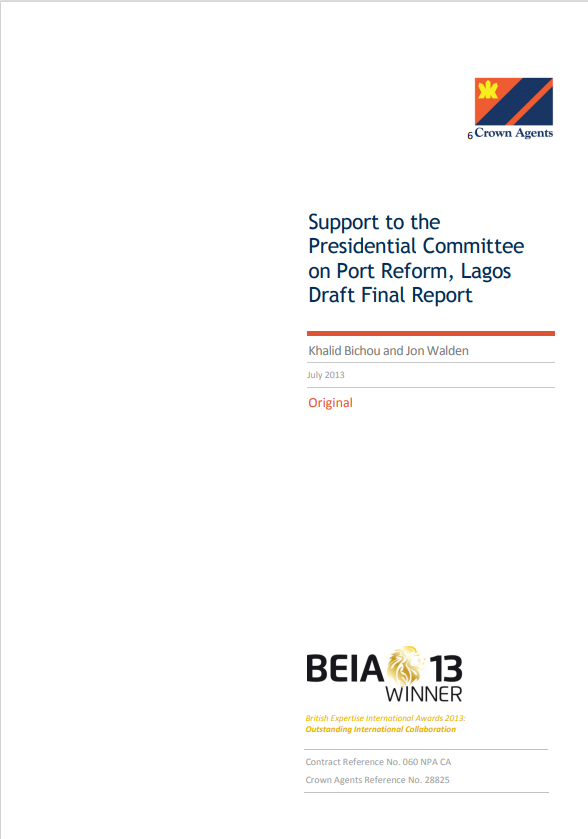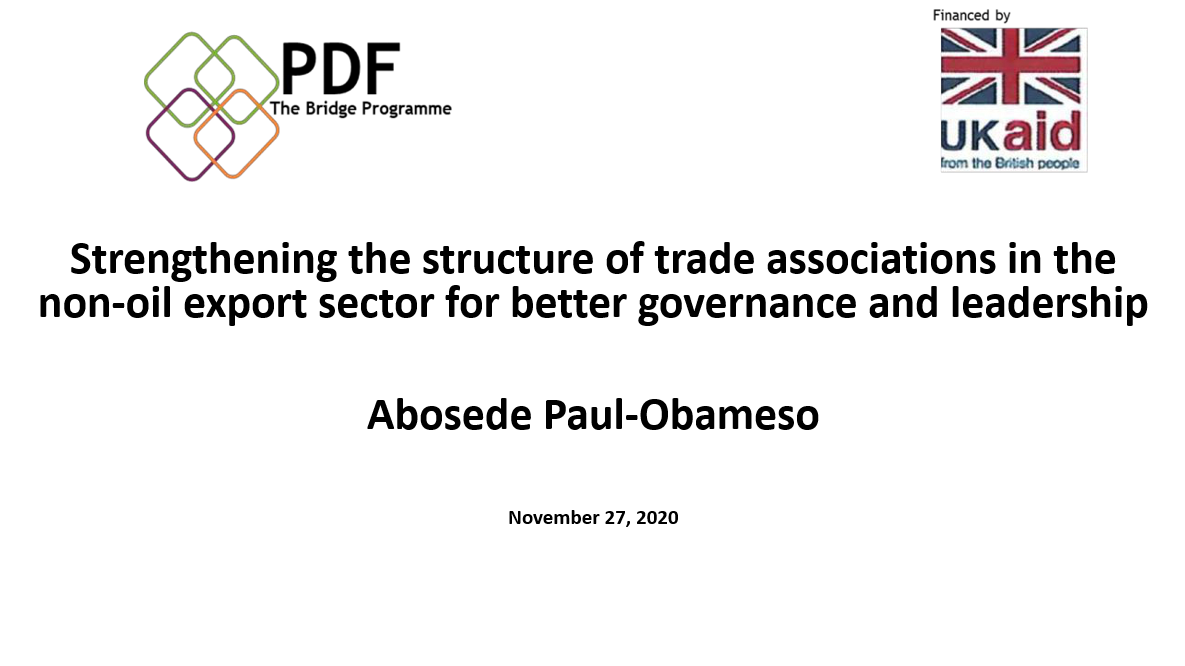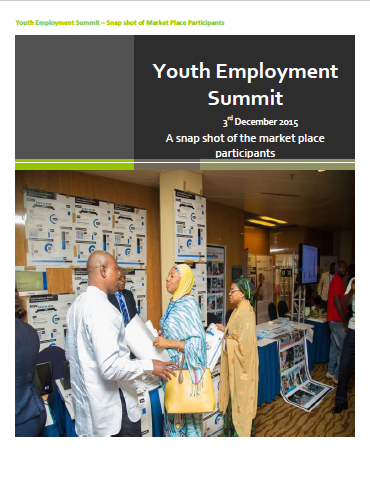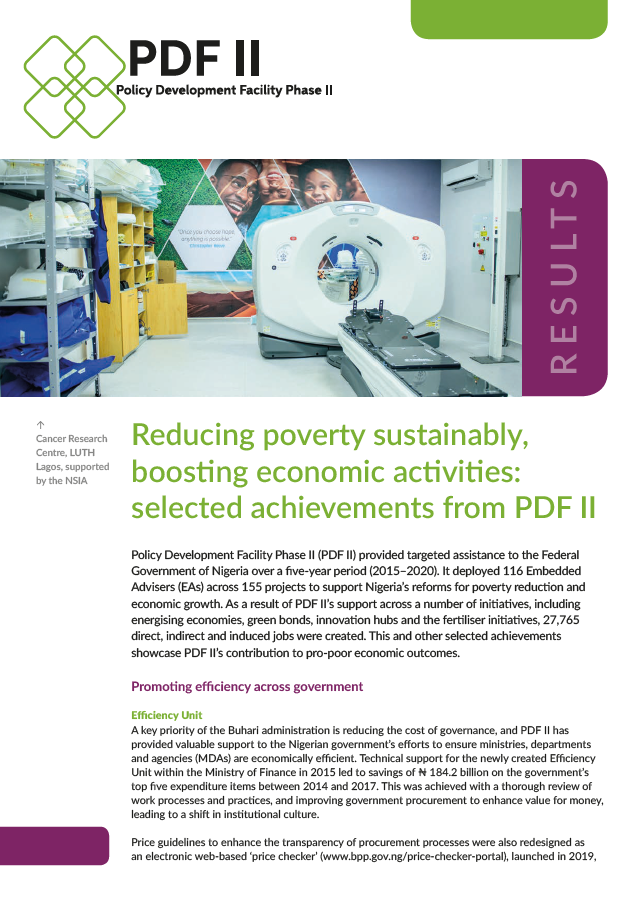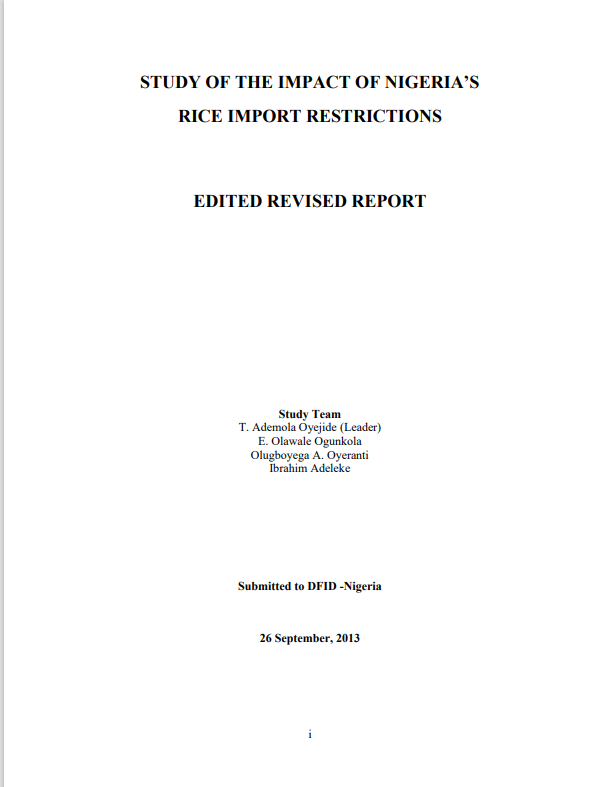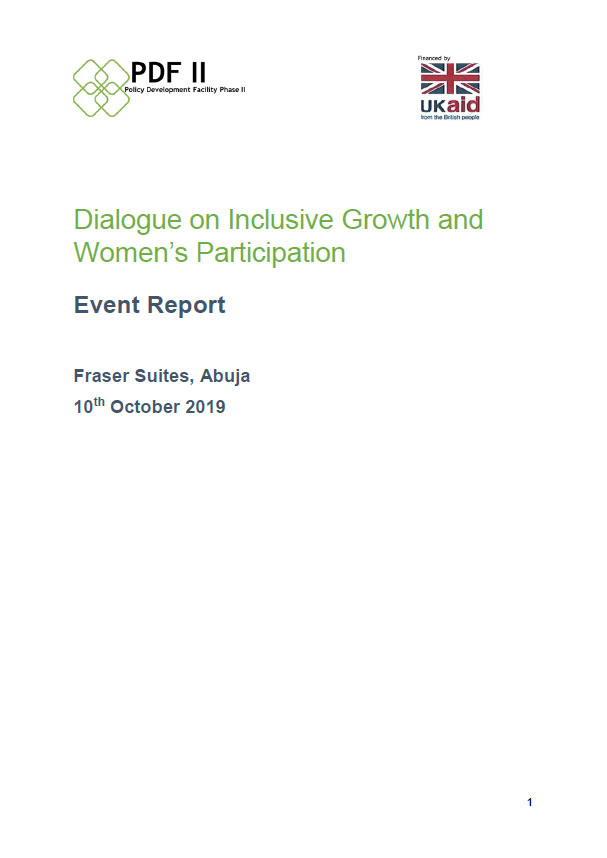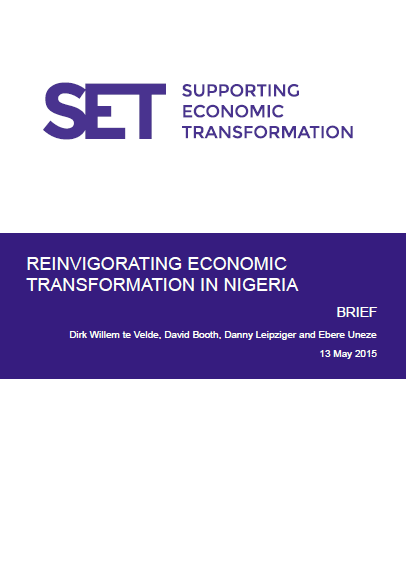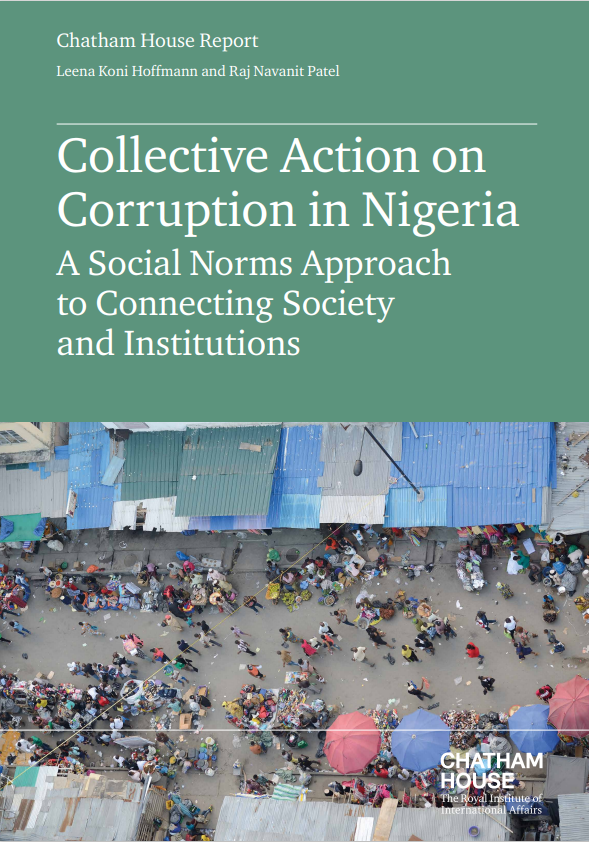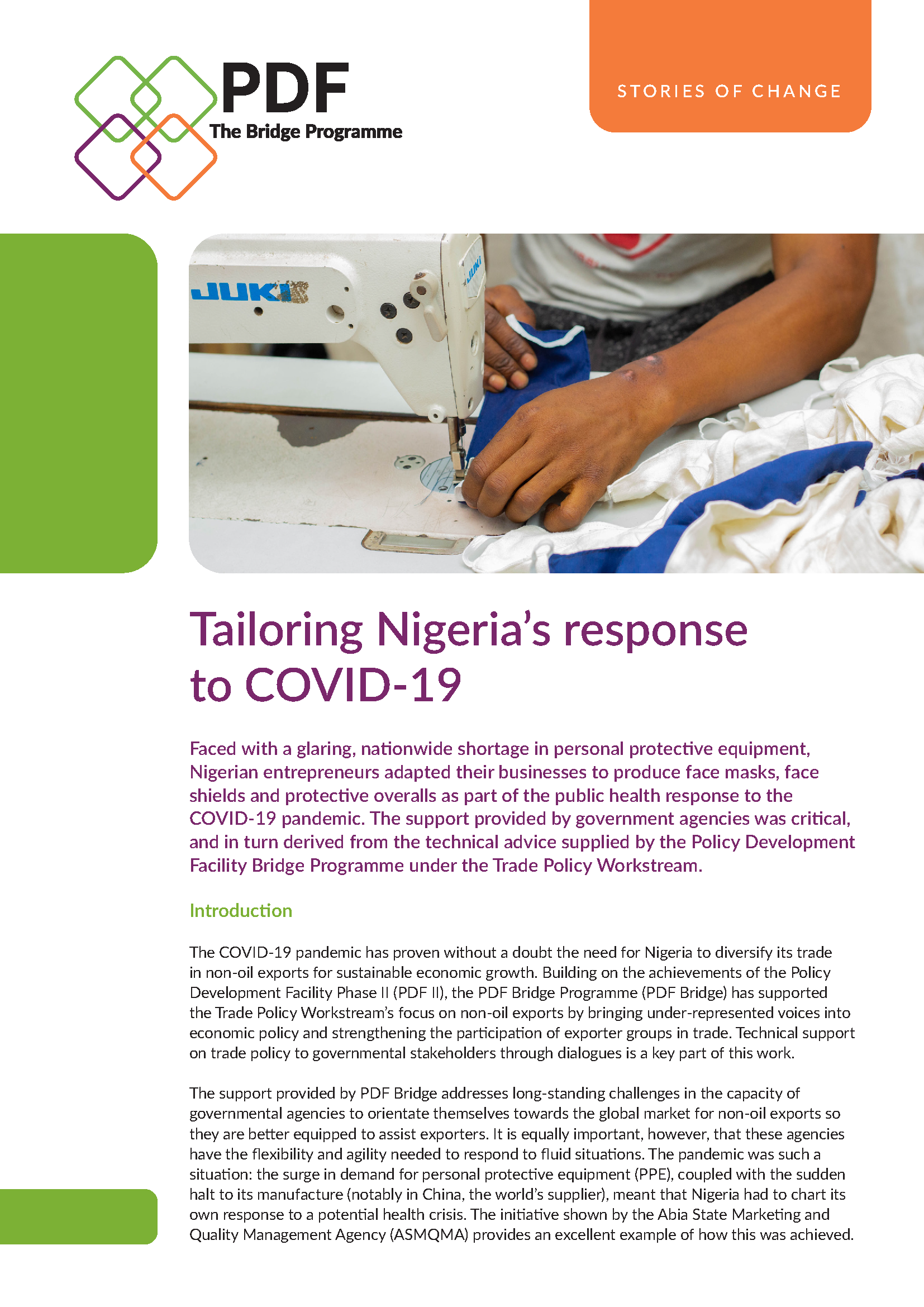Support to the Presidential Committee on Port Reform, Lagos Draft Final Report
This report conducted in 2013 analytically quantifies Lagos ports’ efficiency by traffic and cargo type both internally and vis-à-vis international benchmarks, with poor efficiency scores being recorded in container operations most notably at the landside interface. It examines Lagos port concessions particularly with regards to their activities, size of investments, duration, performance requirements. The analysis shows that there is a need to audit and review the existing concession arrangements and properly plan and design future ones. It provides a summary of recommendations along with an action plan for implementation and improvement. This was done as part of the FCDO (formerly DFID) PDF project Support to the Presidential Committee on Port Reform.

